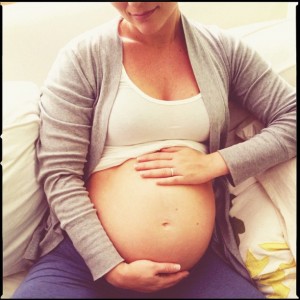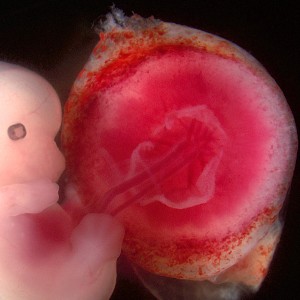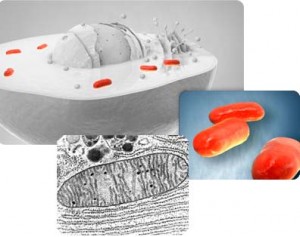Since the mid-70’s, expectant mothers believed to be at high risk for giving birth to a child with a defect have been faced with a critical choice: to take a risky diagnostic procedure called an “amniocentesis” (amnio), or to forgo it and not know what to expect out of their pregnancy.
Imagine that you are an expectant mother who has been told that your future child has a high risk of having a genetic disorder, and would have to make the decision to have an amniocentesis or not. It is likely a tough call to make, because research shows that up to 1 in 100 of these procedures directly result in the loss of the baby, in addition to other risks to the mother and baby.
Luckily, expectant mothers of the future may not be faced with this dilemma. A new technology called “non-invasive prenatal diagnosis” has been recently innovated, which allows doctors to determine if a baby has some sort of genetic disorder without performing a risky procedure! All that is needed is some blood from the pregnant mother.
The idea behind non-invasive prenatal diagnosis is that when a woman is pregnant, there is some of the unborn baby’s genetic information floating around in her blood. This genetic information can be collected from a sample of the mother’s blood, and tested for genetic disorders! Furthermore, the procedure is 99.5% accurate, so with the test results accompanying other tests which are used to detect genetic disorders, physicians can almost definitely ensure that they are correct when they tell a parent their baby will be normal!
Below, Ariosa Diagnostics Inc. explains how a mother’s blood can be used to test for a baby’s genetic disorders.

From Ariosa DX via Youtube.
The possibilities for the applications of this technology stretch far into the future. With the advent of machines which can find out a person’s genetic code in its entirety within the span of a couple hours, and have the ability to do it cheaply, non-invasive prenatal diagnosis could be used to test single genes!
Unfortunately, like many new innovations in the field of genetics and health care, this one has ethical issues. If the technology is not controlled carefully, someday, it may be possible for parents to test to see what their child might be like before its born. Should parents be able to get an abortion just because their child may not be a genius? Or 6 feet tall? The technology to do this is likely going to be expensive; what happens if some families cannot pay for it? I personally believe that this technology is great because it allows parents to make an informed choice about their future child; however, the government should control the application of this technology to traits that are not considered disorders.
-Shaun





